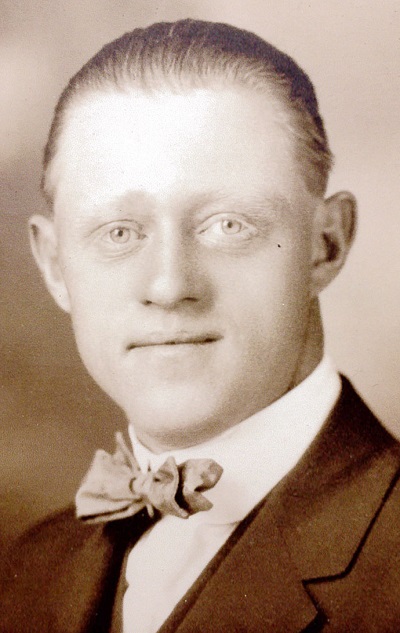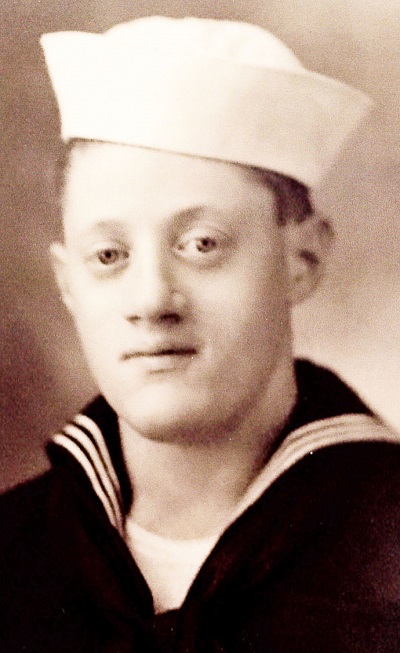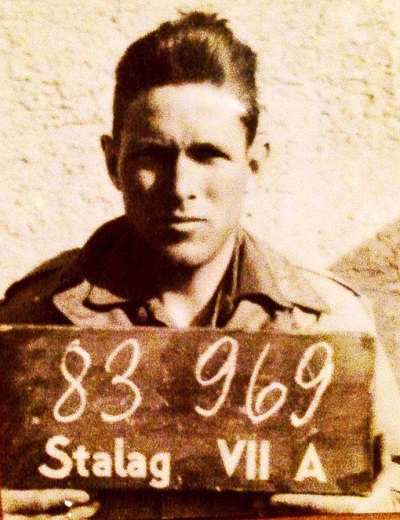The Schillings and Robbins family during the World Wars
~by Dustin Davis, courtesy of The Scranton Journal
First of a series
The Robbins and Schilling families have a storied history of military service dating as far back as World War l. This call to service has been strongly present throughout multiple generations.
The history of military service started with Grandpa McKinley Schilling. While there isn’t much information on the man known affectionately as Mac, he served in the United States Army in an infantry division in 1918 during World War l.
“That is really about all I know. It was just something that Grandpa just never talked about,” Tim Robbins of Scranton, who is McKinley’s grandson, said.
The call to service continued on with McKinley Schilling’s son, William Schilling, who served in the United States Navy from 1941 to 1945 during World War ll. William served on the USS Arkansas, which entered into World War ll and escorted convoys to Europe through 1944.
After work escorting convoys, William and the USS Arkansas continued on in other operations, including the invasion of Normandy and the invasion of Southern France. In 1945, the USS Arkansas transferred to the Pacific theater and bombarded positions during the invasion of Iwo Jima and Okinawa. William told stories of being in the gun turrets on the USS Arkansas and having to dodge Japanese kamikazes, but Robbins said those stories were seldom heard.
“That generation, with the WWII generation, I think they went through such travesties that they just did not talk about it,” Robbins said.
The Robbins family comes into the picture with Kenneth Robbins, the son-in-law of McKinley Schilling and father of Tim Robbins. Kenneth served in the infantry from 1940-45 during World War ll. Robbins became a prisoner of war in November 1942 until he was released in April 1945.

McKinley Schilling 
William Schilling 
Kenneth Robbins
“We even found a canteen a few years ago in which he inscribed on the canteen their routes, where they were all of the time basically from leaving basic training until they were in Africa and captured in Africa and then their time in prison,” Robbins said.
Kenneth became a prisoner of war during the Battle of Kasserine Pass. After running out of food, water and ammunition, he and his fellow soldiers were forced to surrender. After extensive moving around as a POW, they were liberated by the Russians in April 1945 and reached American lines the following month.
“He did talk about it (that) he only weighed 84 pounds when they were released from prison camp … It’s one of those things that I don’t think any of us can really imagine until, we are there, what they really went through,” Robbins said.
After these three men served their countries they came home and continued with their lives. McKinley, William and Kenneth spent their lives as farmers, school bus drivers and of course, proud veterans.
“It just still makes me proud and happy that my grandad, uncle and my dad were actually able to come home and live an American lifestyle again,” Robbins said.
One thing is certain — the call to duty has remained strong throughout the generations, as this is just the beginning of the long line of service throughout these families. Remembering those who came before is a lasting reminder on Veterans Day of the immense sacrifice past, present and future veterans make.
“I am glad that there are those of us that are willing to fight for our freedoms,” Robbins concluded.
